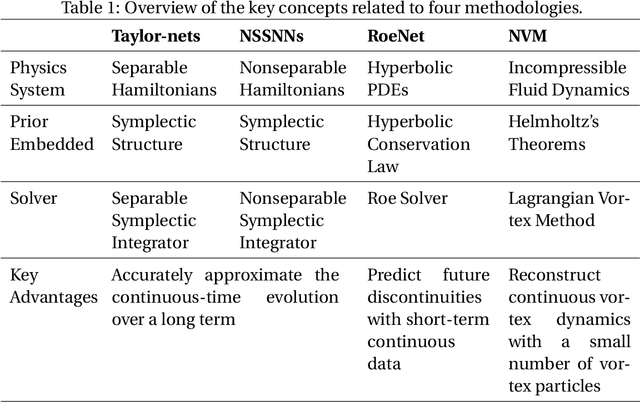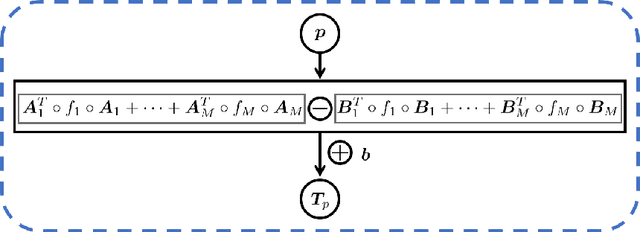Data-Driven Computing Methods for Nonlinear Physics Systems with Geometric Constraints
Paper and Code
Jun 20, 2024



In a landscape where scientific discovery is increasingly driven by data, the integration of machine learning (ML) with traditional scientific methodologies has emerged as a transformative approach. This paper introduces a novel, data-driven framework that synergizes physics-based priors with advanced ML techniques to address the computational and practical limitations inherent in first-principle-based methods and brute-force machine learning methods. Our framework showcases four algorithms, each embedding a specific physics-based prior tailored to a particular class of nonlinear systems, including separable and nonseparable Hamiltonian systems, hyperbolic partial differential equations, and incompressible fluid dynamics. The intrinsic incorporation of physical laws preserves the system's intrinsic symmetries and conservation laws, ensuring solutions are physically plausible and computationally efficient. The integration of these priors also enhances the expressive power of neural networks, enabling them to capture complex patterns typical in physical phenomena that conventional methods often miss. As a result, our models outperform existing data-driven techniques in terms of prediction accuracy, robustness, and predictive capability, particularly in recognizing features absent from the training set, despite relying on small datasets, short training periods, and small sample sizes.
 Add to Chrome
Add to Chrome Add to Firefox
Add to Firefox Add to Edge
Add to Edge